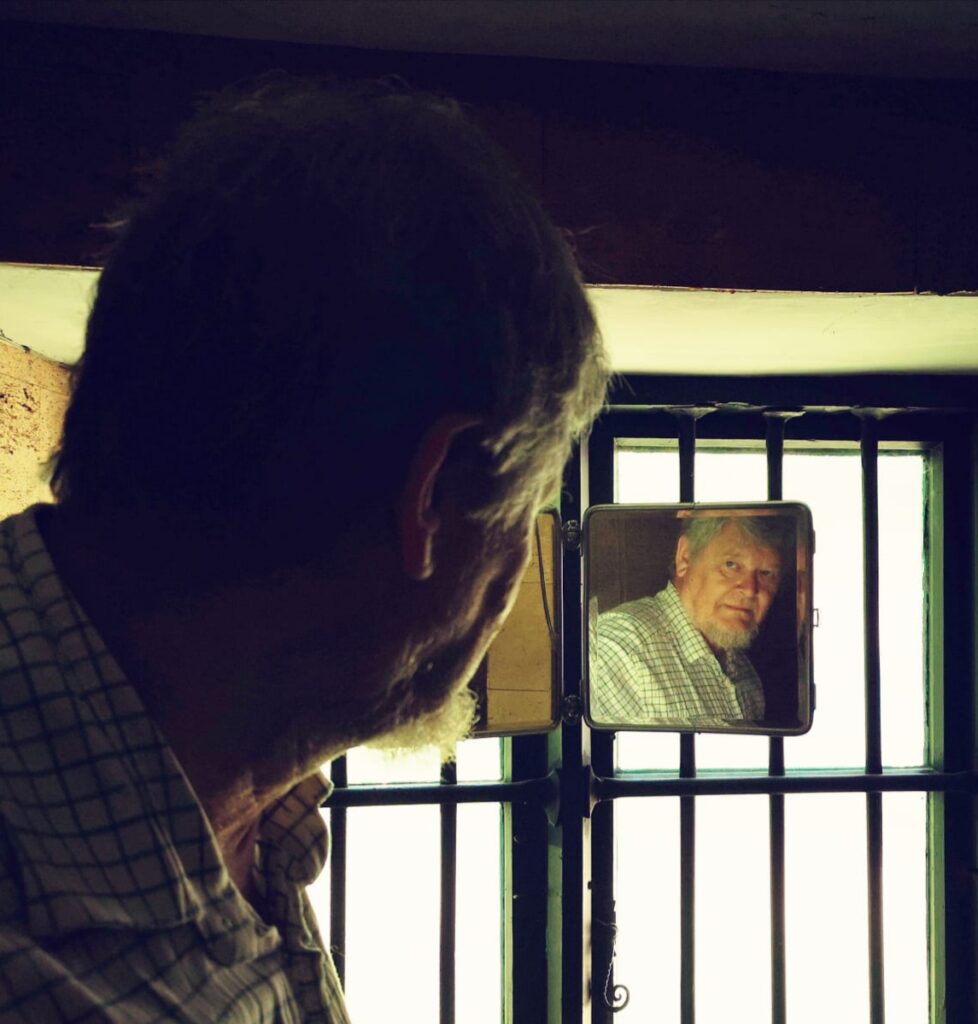22 September 2022
A Cynic
by J.R. Thomas

Thirteen years ago there was the launch of a film called A Prophet. Readers may not have come across this movie, and one hesitates to call it a movie, and certainly not an entertainment. It is a grim tale of events in a French high security prison. It was filmed in France, in French, with mainly little known French actors, and is, among other things which we will come to, a serious exposition of how prisons tend to harden criminals rather than redeem them. It is far from the first film or book to make that point but much good does it ever do; politicians know that there are no votes in the soft approach to apprehended criminals.
The critics loved it – it is indeed an exceptionally well made and powerful film – and it won the Grand Prix at the Cannes Film Festival – and numerous other awards. At the box office, things were not so good. In France it took US$10m, more or less getting its production costs back, and another couple of million in the art house cinemas of New York and California. In the UK it made £1.3m, the fourth highest grossing foreign language film that year – which was the year of the Girl With The Dragon Tattoo.
If anybody outside the rarefied ranks of film critics knows the film now, it is probably because of the haunting closing music: Mac the Knife, that favourite of karaoke parties, but played on an electric steel guitar by the little known (outside the American South-West) but very talented Texas musician, Jimmie Dale Gilmour. (And you can’t download it from Spotify; it does not seem to be available in a recording anywhere, though Mr Dale Gilmore will apparently occasionally play it by request on his rare public appearances in Austin, Texas.) It is Mac the Knife as you have never heard it played or sung before, and you will probably think that it is the only way to hear it thereafter. And when and if you hear it on the movie soundtrack , any theories you have that the events on the screen might be intended to suggest a happy ending will drift away.
Like all the best films it is watchable on all sorts of different levels, though not as comedy. The simple story is of a young Algerian immigrant, Malik, jailed for a relatively minor attack on police officers, and as to how he survives in this closed and very violent prison society. The message is that in most parts of society nobody really knows what is going on; here the prison officers do not know what is happening in their prison; the police misjudge Malik (he is Muslim and heavily scarred) and thus he is put into the wrong jail, the worst place he could be; and the tribes of violent prisoners who effectively run the prison have no understanding of anybody outside their groups. And nobody takes any notice of Malik. No spoilers here, but disaster may be implied to result from this lack of communication and insight. There is a broader lesson here than just how best to run an effective punishment regime (this is a French film remember and meanings come at different speeds and from all angles).
It is a lesson that the politicians of the UK might, at the end of the emotional and spectacular events of the last few days, want to take account of. We have seen an outburst of admiration and grief at the loss of a monarch whose great talent was simply in being sympathetic and kind, saying very little and certainly nothing in the slightest controversial. We have seen the accession to the throne of a son who many thought would never become King, a man who did express opinions, not always popular ones, and whose publicly private live was almost a disaster. Those who have watched him for the last ten years have seen him become more silent, more cheerful, and a unifying force. He has in effect become his mother (it was a slight relief to see the incident of the pens and know there is still a character under the new exterior) and now his face has suddenly that benign but studied neutrality that hers wore. With him, and with his son and heir, we can feel we are in safe hands.
So will we see a little more matching openness and dignity from our politicians; especially our present leaders? Will they start to listen to their electors, and perhaps more to the point will they be open with them, treat them as reasonably sensible, intelligent, and rational adults? The omens are a bit worrying, after a leadership contest which was mostly an auction of promises and a series of slanging matches. Ms Truss has made some very big promises and she will have to deliver on them. That will not be easy, but there seems to be a mood about – and it may be very short lived – that the people will be tolerant of their leaders if those leaders square with them.
Mr Sunak, at the end of the contest, when presumably he knew he was not going to win, suddenly became much more open; about the economy, about the errors and misunderstandings of the covid months, about the government’s increasing tendency to centralisation and over control. It was a bit late, it was very late, but politicians who admit they are wrong are to be admired – if they show they have learned. You cannot, both of you, all of you, call yourself heirs of Thatcher and want more control, higher taxes, greater interference in people’s lives. You must understand what the people want and you must explain why you are going to do what you are going to do and why that will be the right thing. Mrs Thatcher had a very strong philosophy which she believed wholeheartedly, and she had a genius for explaining it in simple terms which most people could understand. Attlee had a similar approach to a very different belief system, so did Churchill in his warnings of the 1930’s, and so, surprisingly perhaps, did the early Harold Wilson. Time to talk to us, Ms Truss, and to explain what you will do and why – and what you may not do yet or delay. Time also to take Rishi back into your cabinet, he can only be an asset in a senior job and would be wasted surfing in California.
And you do not want him practising his own very individual treatment of Mac the Knife; do you?
tile photo: simon frederick on Unsplash


